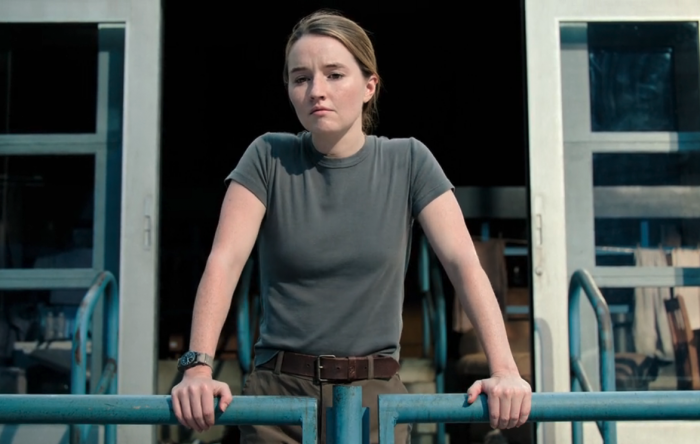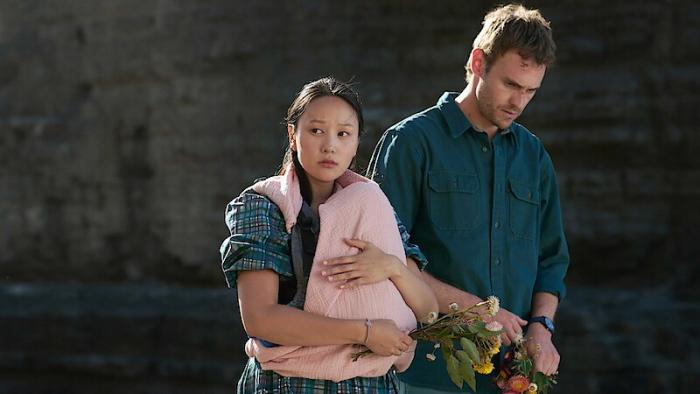
Has ‘Nine Perfect Strangers’ Lost the Plot and Its Mind?
By Chris Revelle | TV | June 11, 2025

Nine Perfect Strangers had a strong start to its second season. Masha (Nicole Kidman) relocated to Zauberwald, the German wellness retreat where she learned the psilocybin-based “protocol” she would later offer to the world. The excellent cast (Kidman, Henry Golding, Annie Murphy, Murray Bartlett, Lena Olin, Christine Baranski) were given broad but entertaining characters to play. The chilly Alpine air was thick with mystery and camp possibilities. The series seemed poised to show viewers a very watchable mess with tightly-wound rich people going on drug trips while Masha does her absurd girlboss-guru shtick in what might be an all-time crazy Kidman wig. It seemed to promise a more wicked, more playful romp than the first season’s uneven efforts. Alas, in the most recent episode (“Prague”), Nine Perfect Strangers loses its dizzy little mind and jumps right out the window.
The series, streaming on Hulu, makes a mistake similar to that of And Just Like That… in how it fails to balance a supporting cast full of soapy dramatic potential against the individual struggles of its main character. The people who have come to Zauberwald for Masha’s protocol all have promising set-ups with deceptively shallow execution. Sister Agnes (Dolly de Leon) is an intriguing figure; a famous nun who suddenly lost her faith and left her order. Her crisis of faith occurred when she noticed something was wrong with a woman’s pregnancy, but her mother superior instructed Agnes only to pray instead of intervening, which led to the death of both mother and child. De Leon acts the hell out of Agnes’ guilt, but it feels narratively glib. We see why she left the order, and there ends her tale, largely without emotional resolution. Recovering piano prodigy Tina (King Princess) has a similar struggle at play. Her backstory shows there’s no particular incident or issue that pushed Tina away from music. It was more what the piano represented: crushing pressure to succeed at the cost of normalcy. Tina’s whole life was made to be about the piano and perfecting her craft. She came to doubt whether she was seen and loved as a person or simply as this piano-playing machine. As with Agnes, the root of Tina’s troubles is understandable, but it feels overpruned as a story. They both have complex and compelling ideas to dig into, but there’s no extra time to spend on any other story but that of Masha and her insane quest to introduce her dead daughter to her estranged father.
There was a similar plot in the series’ first season with the Marconi family, whose mushroom trips allowed them to share a hallucination of their dead son Zach, who had committed suicide. The Marconis could share their hallucination because they all knew Zach intimately. Masha hopes to recreate this with David Sharp (Mark Strong), the rich industrialist with whom she had her daughter Tatianna. Tatianna appears to Masha in intermittent hallucinations. She plans to use her magical psilocybin machine that she was hawking in the second season premiere to introduce the vision of dead Tatianna to her living father, David. Not to ask a nitpicky question, but how? David never met Tatianna, nor was he aware she ever existed. Masha has no way to ensure that whatever David sees has anything to do with the Tatianna she hallucinates.
Masha uses her little device to pump David full of psilocybin so that she can retell their shared history and show him what happened to her after their tryst in Prague. This leads viewers through an obtuse and convoluted tale of how the Czech ace news producer, Mila Zarutskova, had one magical night with David, got in too deep on a story about a criminal mastermind, moved to Russia under a new name, and lost her daughter to goons sent by that dastardly mastermind. This ostensibly will lead to the dead daughter/living father introduction Masha wants so badly, but it feels instead like padding being used to delay that big moment. As David himself calls out, it feels like a sloppy Cold War spy story, and instead of making Masha seem more interesting or motivated as a character, it makes Nine Perfect Strangers feel like a story told with Mad Libs.
These choices could be fun in their way if Nine Perfect Strangers didn’t take itself quite so seriously. The weighty framing indicates that Masha and her loony plans are meant to be resonant, that viewers should see pathos in her gonzo antics. Spending so much screen time taking Masha’s schemes seriously leaves the series with too little attention to give to the other characters’ genuinely interesting histories. There are seven other characters with tantalizing ideas to play with that are given short shrift so that Nine Perfect Strangers can give all its love to its weakest and sweatiest plotline. There’s a world where “Nicole Kidman shows Mark Strong their dead daughter through the power of magic mushrooms” is a wild, operatic, and campy delight, but by playing it so straight and sacrificing its more compelling parts, Nine Perfect Strangers shows it’s not only lost the plot, but lost its mind too.



